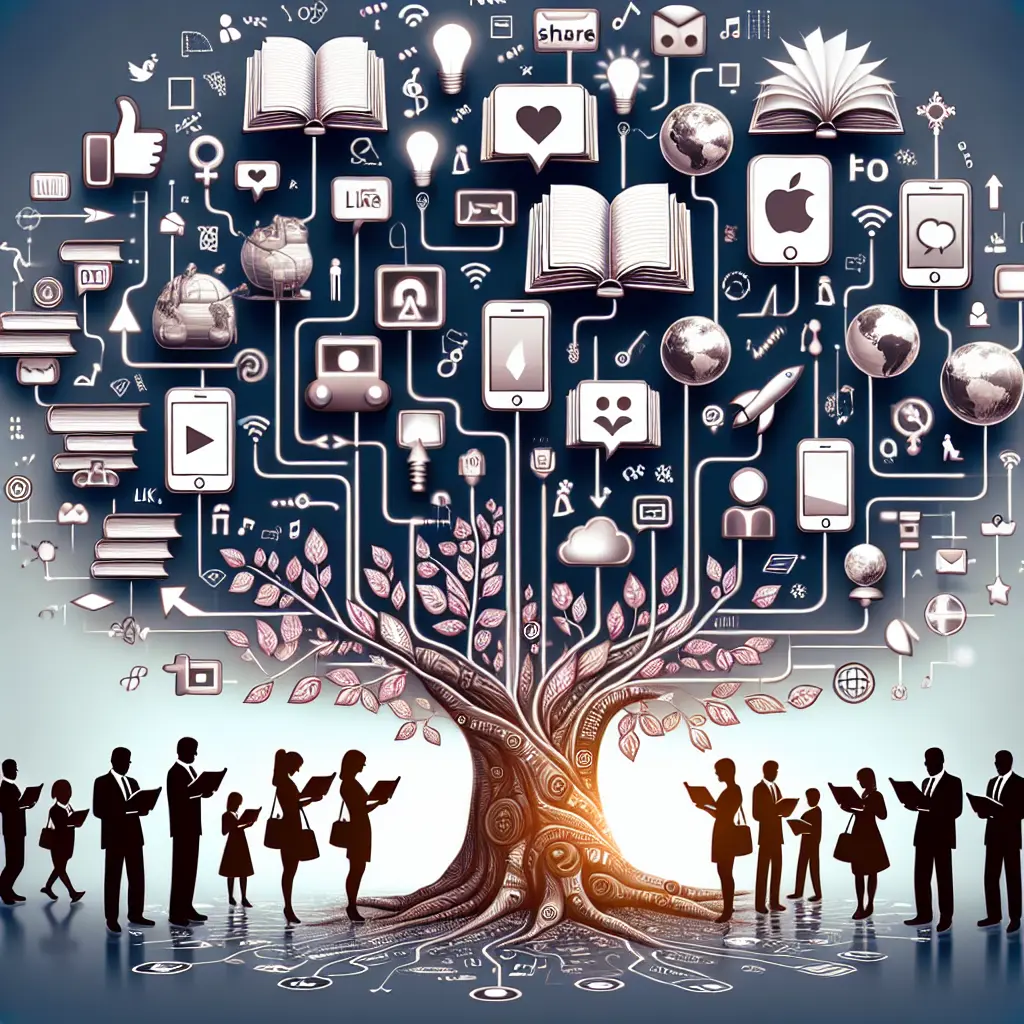
In today’s rapidly evolving digital landscape, the impact of social media on language cannot be overstated. As platforms continue to shape how we communicate, they also mold the very structure and essence of language itself. This exploration delves into the multifaceted influence of digital communication on language evolution and learning, integrating insights from recent research and linguistic trends.
Digital Communication Effects on Language
The dawn of digital communication has fundamentally altered linguistic practices. Platforms like Twitter, Facebook, and Instagram have not only introduced new forms of communication but have also brought about significant changes in grammar, vocabulary, and the way we construct meaning. The term 'social media language evolution' captures this ongoing transformation, as everyday speech and traditional writing styles amalgamate into a new, dynamic form of expression (Source: Linguistic Society of America).
Social Media Language Learning
Social media platforms offer unprecedented opportunities for language learning. Tools and communities dedicated to language acquisition thrive on these platforms, enabling users to learn and practice new languages within global communities. This influence of digital platforms on language learning is evident as users adapt their linguistic skills in real-time, interacting with native speakers and other learners from around the world (Source: Modern Language Association).
The Slang and Jargon of the Digital Age
One of the most noticeable impacts of social media on language is the evolution of slang. Phrases and words that originate online often gain traction rapidly and become part of everyday vocabulary. The 'social media slang evolution' is not just limited to English but spans multiple languages, influencing speech patterns globally (Source: Global Language Monitor).
Internet Language Trends
As internet language trends evolve, they often reflect broader cultural shifts. The use of hashtags, for instance, has transformed from a mere tool for categorization into a linguistic phenomenon that influences both the structure and interpretation of language. Hashtags have introduced a new layer of meaning and emphasis in written communication, impacting everything from casual chats to marketing strategies (Source: Journal of Computer-Mediated Communication).
Social Media and Linguistic Change
The rapid dissemination of information through social media accelerates linguistic change. Terms and expressions can go viral overnight, altering their usage and even leading to permanent changes in language. For example, the increased visibility of niche or culturally specific terms can lead to their adoption across different languages and regions, promoting a more inclusive linguistic landscape (Source: American Dialect Society).
Influence on Communication Skills
While social media enriches language, it also presents challenges. The 'social media impact on communication skills' is a double-eded sword; though it enhances the ability to communicate concisely, it may also lead to an oversimplification of language and reliance on visual or emotive cues rather than nuanced expression (Source: Harvard Review of Psychiatry).
Technology and Language Evolution
Advancements in technology, particularly AI and machine learning, continue to influence language evolution. The recent study revealing that AI models like ChatGPT do not pose an existential threat due to their inability to learn independently underscores the controlled environment in which language evolution occurs in the realm of AI (Source: ZipNada).
Grammar in the Age of Social Media
Social media's effects on grammar are evident as traditional rules make way for more dynamic forms of expression. Blogs and online articles, such as those advocating for a flexible approach to grammar in memoir writing, highlight the shift towards a more authentic and personal style that resonates with digital audiences (Source: Writing Cooperative).
Expanding Vocabulary through Social Media
Platforms like Twitter not only reflect existing linguistic trends but also create new ones. The constant invention of new words or repurposing old ones can lead to significant vocabulary expansion among users. This phenomenon enhances the richness of language but also challenges users to keep up with ever-evolving terms (Source: Oxford English Dictionary).
Conclusion
The intersection of social media and language is a fertile ground for linguistic innovation and learning. As we navigate this evolving landscape, it is crucial to understand both the opportunities and challenges posed by digital communication. By embracing these changes, we can enrich our linguistic skills and adapt more effectively to the globalized communication demands of the 21st century.
Thank you for joining me in this exploration of how social media shapes our words and worlds. As we continue to tweet, post, and share, let us be mindful of the powerful role language plays in connecting us all.
Calvin Broadmoor